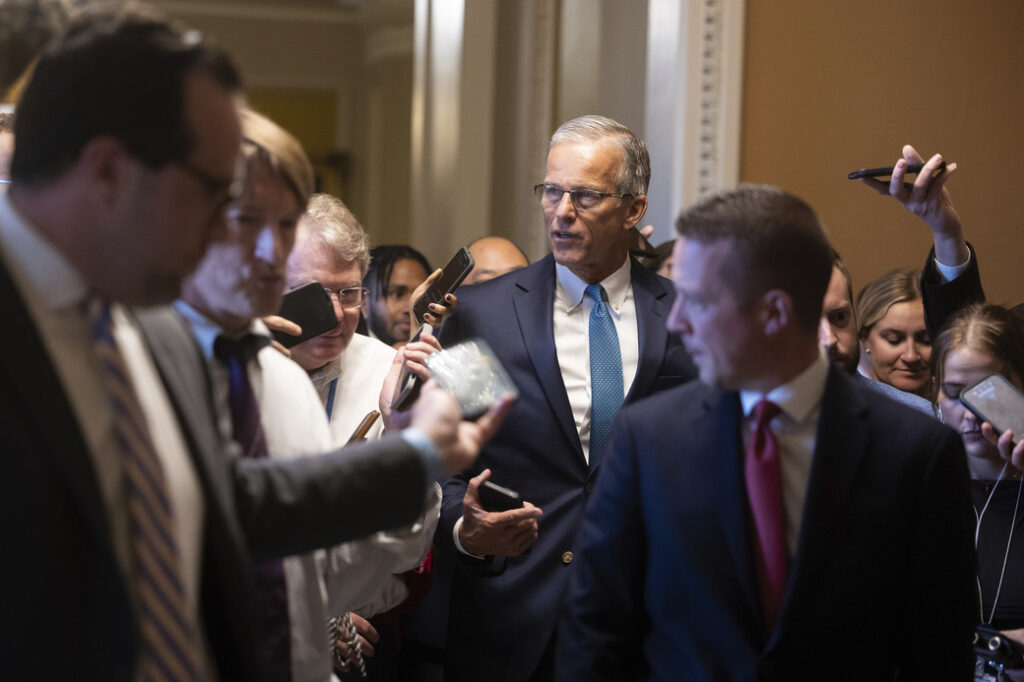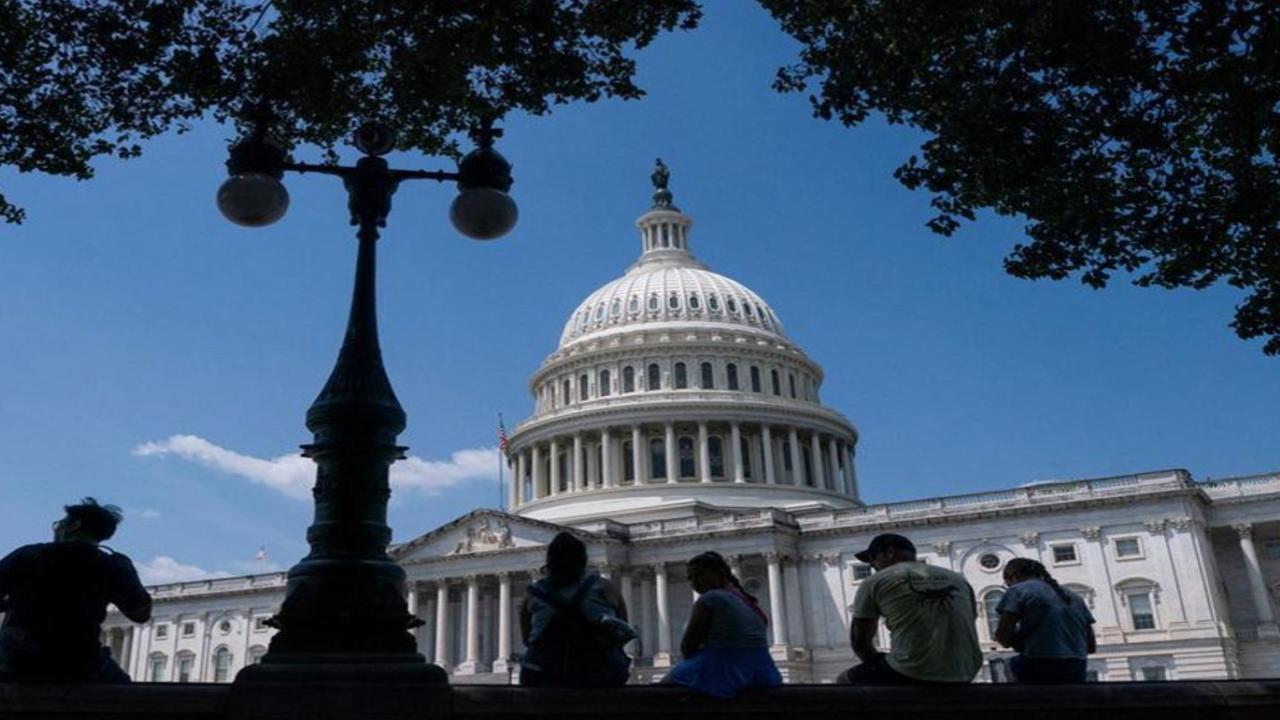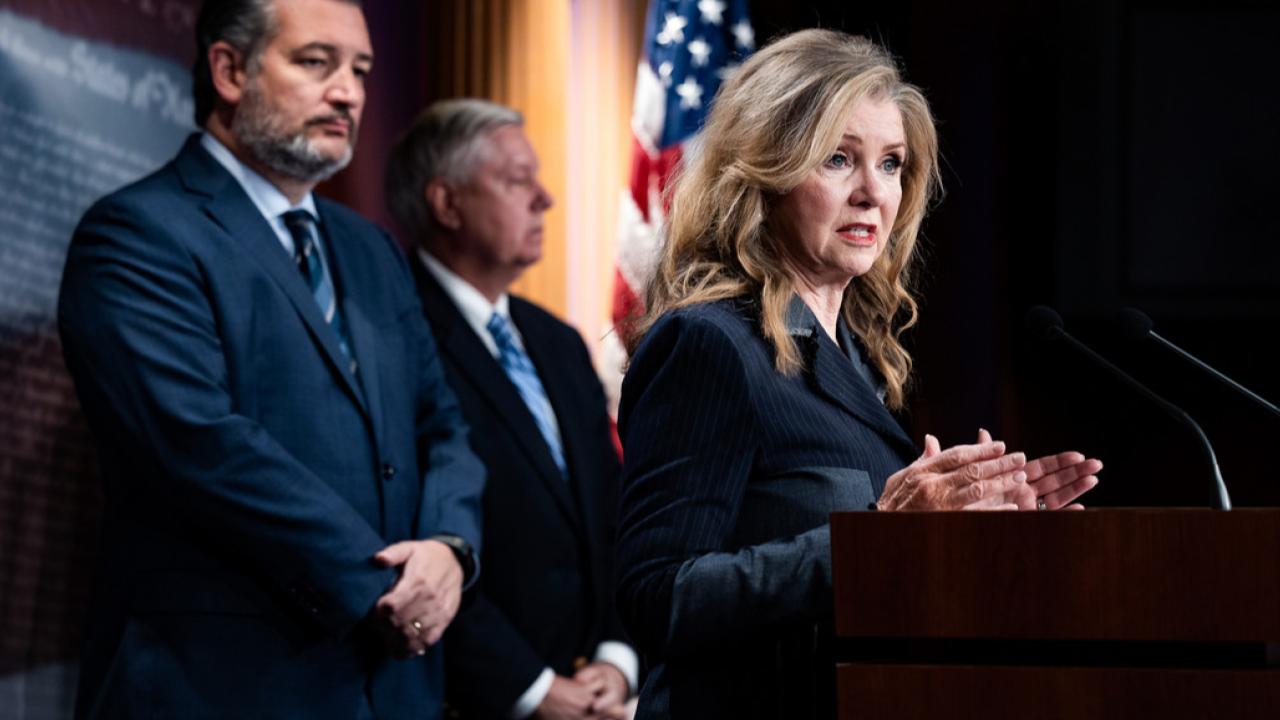President Trump’s mammoth 940-page “One Big Beautiful Bill” cleared its first major Senate hurdle Friday night, even as two Republicans broke ranks and voted against advancing it. With a narrow 51–49 vote, the bill now heads into a heated amendment phase, as Senate Republicans push to meet Trump’s July 4 signature deadline.

Two GOP Senators Break Ranks
| Takeaway | Insight |
|---|---|
| Vote Outcome | Senate advanced the bill 51–49; Sens. Thom Tillis (NC) and Rand Paul (KY) were the only GOP dissenters |
| Bill Length | The package totals 940 pages, released just hours before debate began |
| Estimated Cost | CBO projects up to $3.3 trillion in additional deficit spending over the next decade |
Despite public concerns over cost and process, Trump’s signature legislative package is moving forward. With just two Republican senators defecting, the bill has passed a critical hurdle in the Senate. Now, all eyes are on the amendment battles ahead—and whether Republicans can deliver on their promise of a July 4 celebration at the White House.
What’s in the 940-Page “Big Beautiful Bill”?
Dubbed the “One Big Beautiful Bill,” this sweeping legislative package combines tax cuts, military spending, immigration enforcement, and healthcare reforms in a single omnibus push. It would permanently extend Trump-era tax cuts for individuals and businesses, restrict Medicaid and food stamp eligibility, and redirect billions to defense and border enforcement.
Senate Republicans released the text just before debate started—prompting Democrats to demand the full bill be read aloud, a delay tactic that took nearly 10 hours to complete. “I stayed up all night skimming through this beast,” one Democratic staffer told us. “There’s stuff in here that hasn’t even been debated.”
GOP Dissent: Two Senators Say No
The two GOP “no” votes came from Senators Rand Paul of Kentucky and Thom Tillis of North Carolina.
- Rand Paul cited fiscal concerns, saying the bill would “explode the deficit” and undermine conservative credibility.
- Thom Tillis focused on healthcare impacts, particularly the rural hospitals in his home state that could lose Medicaid reimbursements under the bill’s provisions. Shortly after the vote, he announced he will not seek re-election.
“This is not what I signed up for,” Tillis said in a statement. “North Carolinians expect better.” Their opposition wasn’t enough to derail the motion to proceed, but it signals growing discomfort within GOP ranks.
What Happens Next in the Senate?
Now that the motion to proceed has passed, the bill enters an intense amendment phase. Dubbed “vote-a-rama,” senators will introduce a flurry of changes—some symbolic, others substantive—as both parties jockey for leverage.

The Senate parliamentarian will also review whether all bill elements comply with budget reconciliation rules, which allow passage by a simple majority.
Senate leaders say they aim to complete debate and hold a final vote by Monday night. If passed, the bill returns to the House—where Republicans narrowly passed it earlier this month—for a final up-or-down vote.
What’s the Economic Impact?
The Congressional Budget Office (CBO) estimates the bill could add $3.3 trillion to the national deficit over 10 years. Republicans dispute that, claiming growth and cost savings will offset most of the spending.
But independent analysts and Democratic lawmakers aren’t convinced. “This is fiscal fantasyland,” said Sen. Elizabeth Warren (D-MA). “You can’t give out tax cuts, boost military spending, and slash healthcare without consequences.”
Health policy groups also warn that more than 10 million people could lose Medicaid coverage if eligibility restrictions are enacted.
The Trump Factor: Racing Toward July 4
Trump has said he wants to sign the bill into law by Independence Day—a symbol of GOP unity and a key pillar of his 2025 reelection campaign.
Meeting that timeline will require:
- Senate passage by July 1
- Rapid House approval, likely within 24 hours
- Trump’s signature on or before July 4
Any delays in amendment debates or unexpected GOP defections could derail that schedule.






